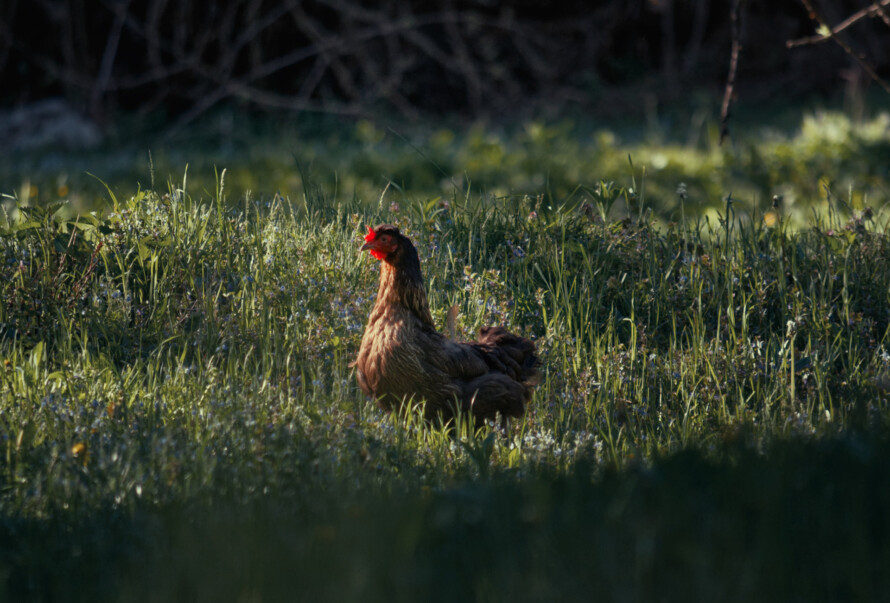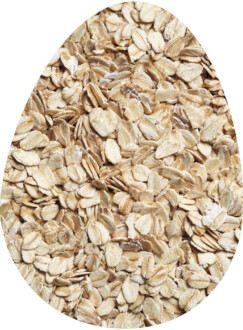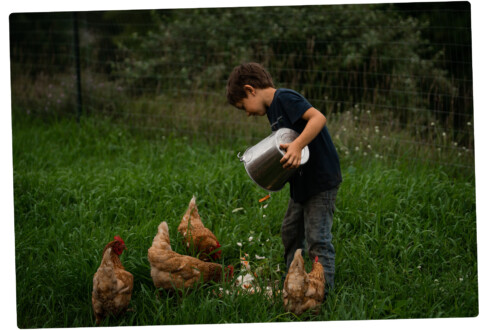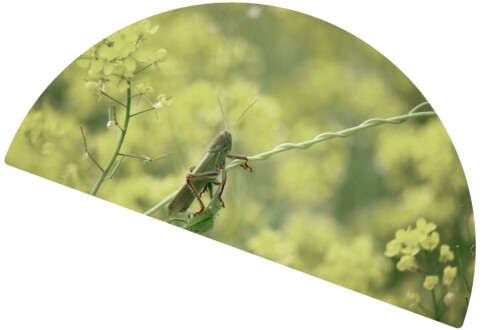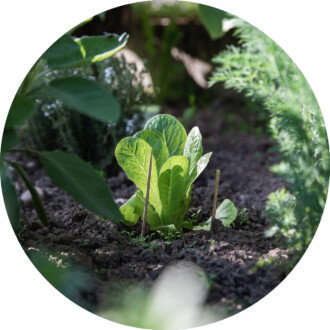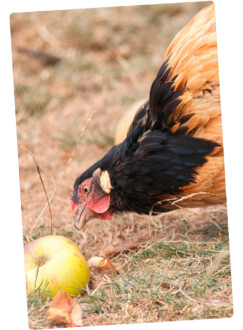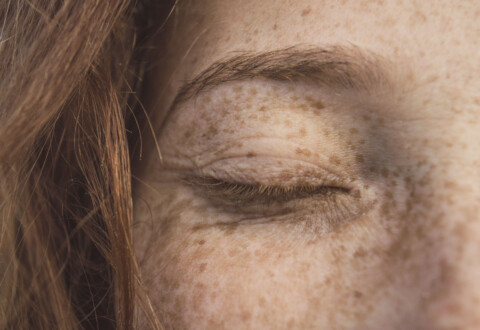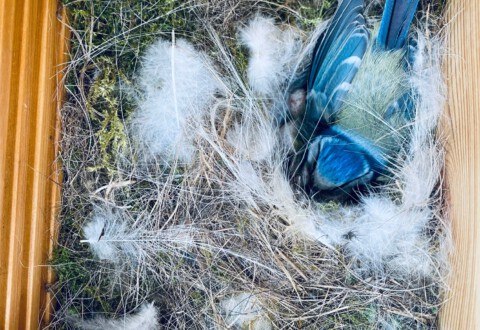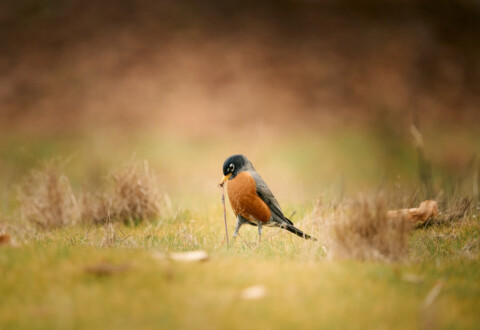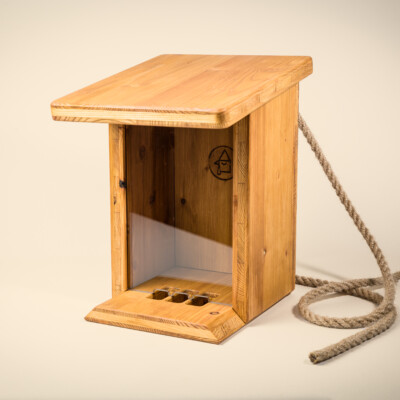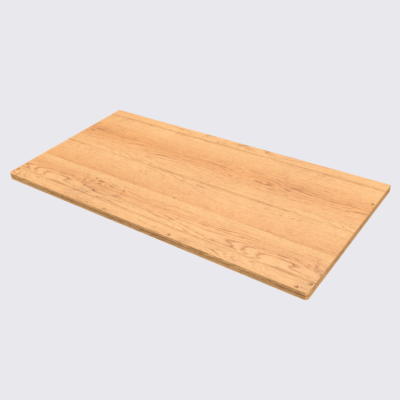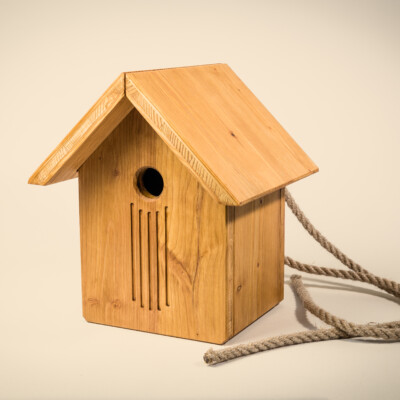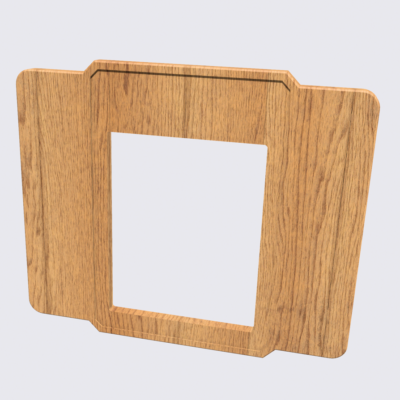Chickens are omnivores. They eat plants and also other animals. With plants, they are quite selective and can distinguish well between those that are good for them and those that are perhaps even poisonous. With animals, however, I would say that they eat everything that lands in front of their beak – as long as it is smaller than they are.
There is no one feeding-plan that applies equally to all chickens. The right diet depends on various factors such as breed, age, season, state of health and how they are kept. The most relevant factor is how they are being kept, and especially the outdoor area/run – the more food your chickens find in this outdoor area, the less you have to “supplement” their diet.
The following “set menu for chickens” will certainly help you answer the question of what to choose. It consists of 3 courses:
- A vegetable starter
- A meaty main course
- Fruit for dessert
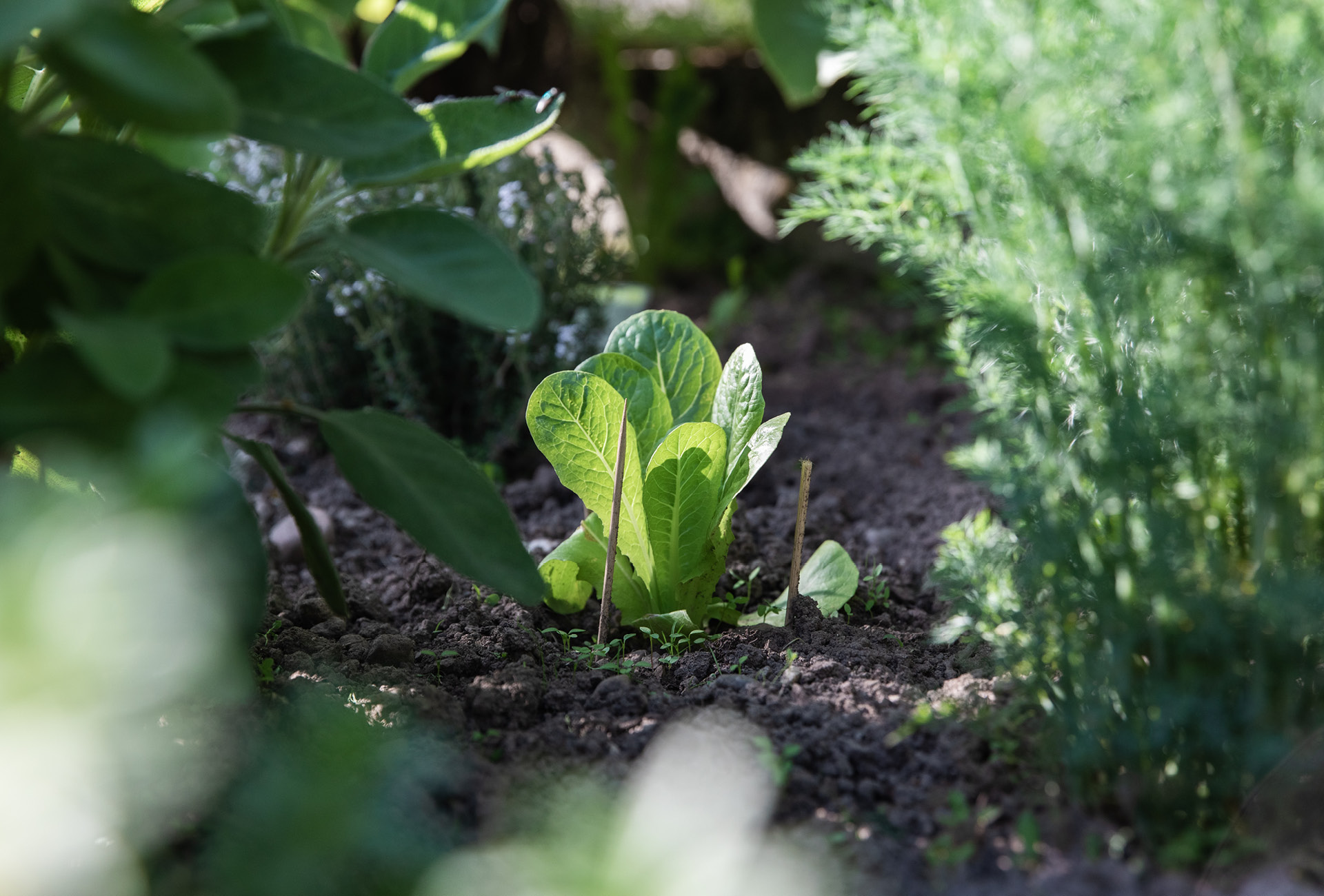
A vegetable starter
Chickens love many different kinds of lettuce, grass and herbs, and they are very good at recognising plants which are not good or even poisonous for them (although you should still remove these plants).
Any of the following plants, for example, are good for the vegetarian part of their menu:
- Lettuce (leaf, iceberg, romaine, field salad…), chicory/endive leaves
- Root vegetables: carrots, beetroot, parsnips
- Cabbage family: white cabbage, cauliflower, kohlrabi/German turnip, broccoli
- Gourds: cucumber, pumpkin
- Kitchen herbs: parsley, fennel, basil
- Wild herbs: nettle, alfalfa, dandelion, goutweed, clover, broadleaf plantain, chickweed
It is of course ideal if you can use vegetables and herbs from your own garden. You can store part of your crop for the winter – then your chickens will still have a variety of things to eat in the winter months too.
Caution – inappropriate/toxic foods
There are also foods that, despite being things we humans like to eat, are not good for the chickens, and in some cases are even poisonous.
Inappropriate
- Tomatoes, citrus fruits
- Sugar, raw milk, chocolate
Poisonous
- certain cultivated crops such as raw potatoes, avocado, rhubarb leaves
The meaty main course (incl. feed)
As omnivores, chickens love animal as well as plant food. When scratching, they are constantly on the lookout for bugs of all sorts (worms, flies, beetles, grasshoppers, snails and their eggs, cockroaches, grubs). Even small mammals (e.g. mice) or small snakes are not safe from chickens.
> My EXPERIENCE: “Cockroaches have no chance of surviving in your chicken garden, and snakes will avoid it too!”
The smaller and sparser the run, the more likely this natural menu will not provide enough food. Therefore, you will normally have to feed them more. Here again, there are several options:
- grain feed
- leftovers from the kitchen
- compost
- grass
At the very latest in winter, feeding the chickens becomes a bit more time-consuming, because then they will certainly not find enough food in the run.
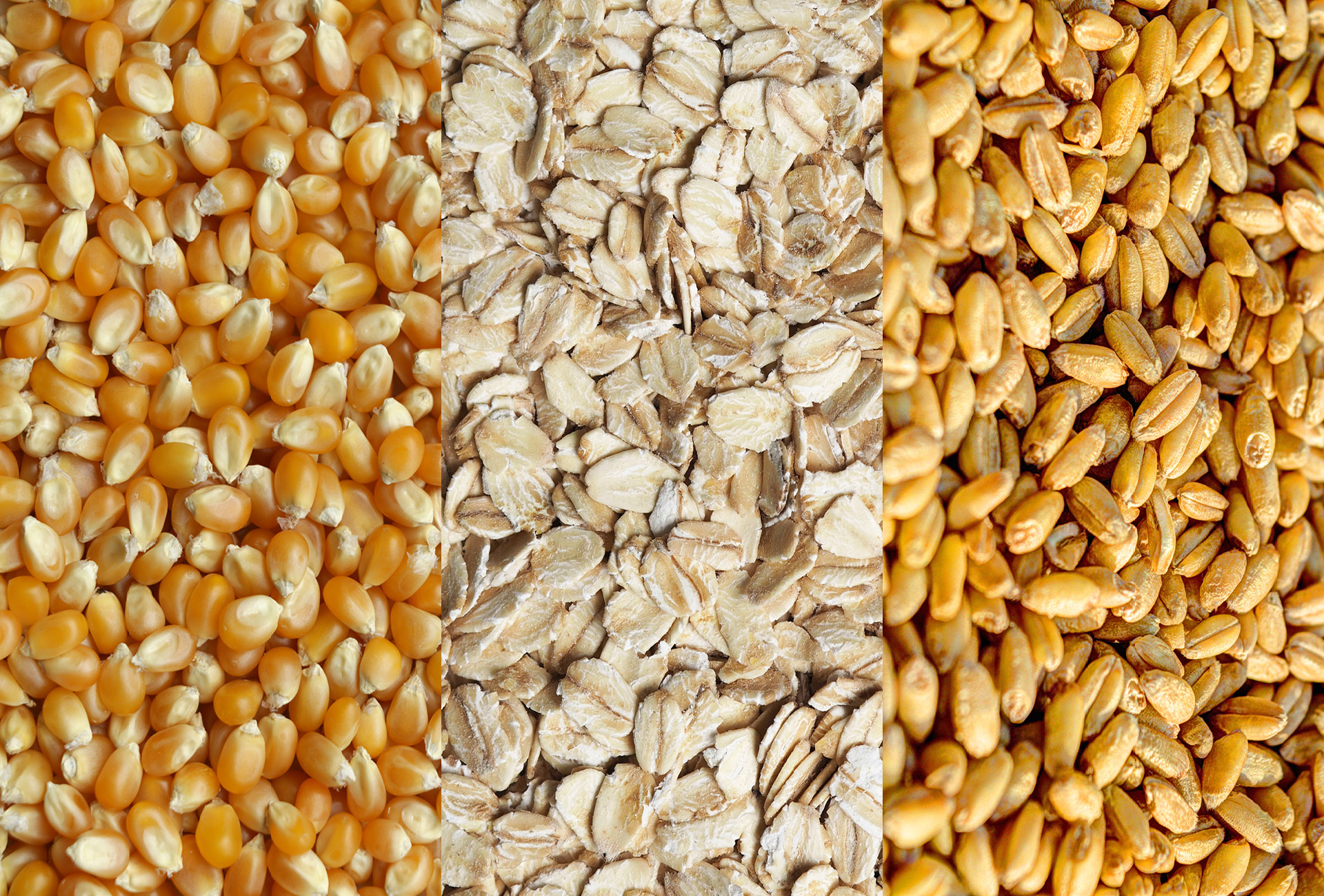
Grain feed
The simplest and best-known form of feed is that of grains. Wheat, barley, oats, rye, millet and maize/corn are the most suitable. Regardless of the mixture, it is always important that the grains remain clean and dry, otherwise they will sprout or attract vermin. In this case, the chickens won’t touch the feed.
You should remember here, though, that the feeding of chickens predominantly or even exclusively on grains is primarily a result of industrialised farming. This has little to nothing to do with the original, natural diet of chickens, and is very far from balanced. Therefore, you should see grains much more as a supplemental food for your chickens.
Different forms are available, depending on how the grains are processed: whole grains, roughly ground, ground into flour or compressed into pellets. Flour is used for chicks, while adult chickens definitely prefer whole grains.
> My TIP: “One great advantage of pellets is that it gets around the problem of the chickens selecting only certain grains. In this way you save yourself being left with vast amounts of grains lying around on the floor which the chickens have picked out of the feeder and then rejected.”
Adding shellfish grit to their diet may be necessary not only to aid digestion, but also to replenish mineral stores.
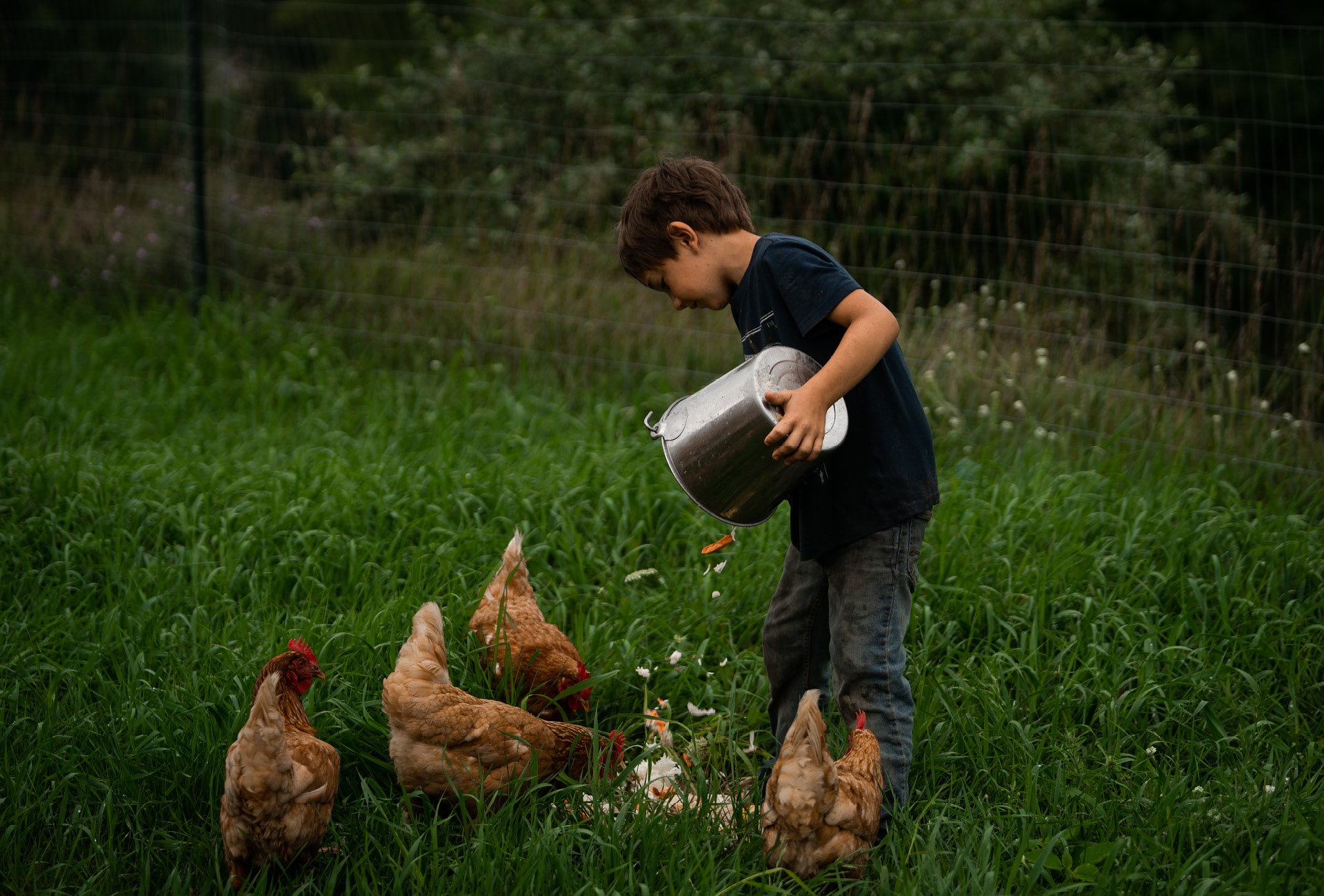
Food from the kitchen
In addition to classic kitchen leftovers such as rice, pasta or soaked bread, you can also occasionally prepare various protein-rich delicacies for your chickens. Use yoghurt, quark or – as strange as it may seem at first – boiled egg as the base. The chickens like the taste and it forms a very good food supplement.
> My EXPERIENCE: “Chickens go absolutely crazy for mealworms – whether alive or dried.”
However, this protein-rich food should only be fed in small quantities.
Compost etc.
A compost heap acts like a magnet for chickens, mainly because it is a breeding ground for the small animals they love to scavenge. They find a particularly large number of worms, beetles and the like here. Of course, chickens also eat food scraps from the compost heap, but you should not expect them to bulk process your kitchen waste into high-quality fertiliser.
Soil and dead wood are also deliberately eaten from time to time to detoxify the body.
Grass
Chickens also particularly like to pluck off blades of grass. The carotene they contain is particularly important for their health and is responsible for the orange colour of the yolks.
Note that they primarily eat the fresh grass tips. You should therefore mow the lawn in the run regularly, because this is the only way new blades of grass will grow.
> My TIP: “A pile of grass cuttings makes a welcome change for the chickens: they find lots of herbs and insects here and they very much enjoy pecking their way through the pile.”
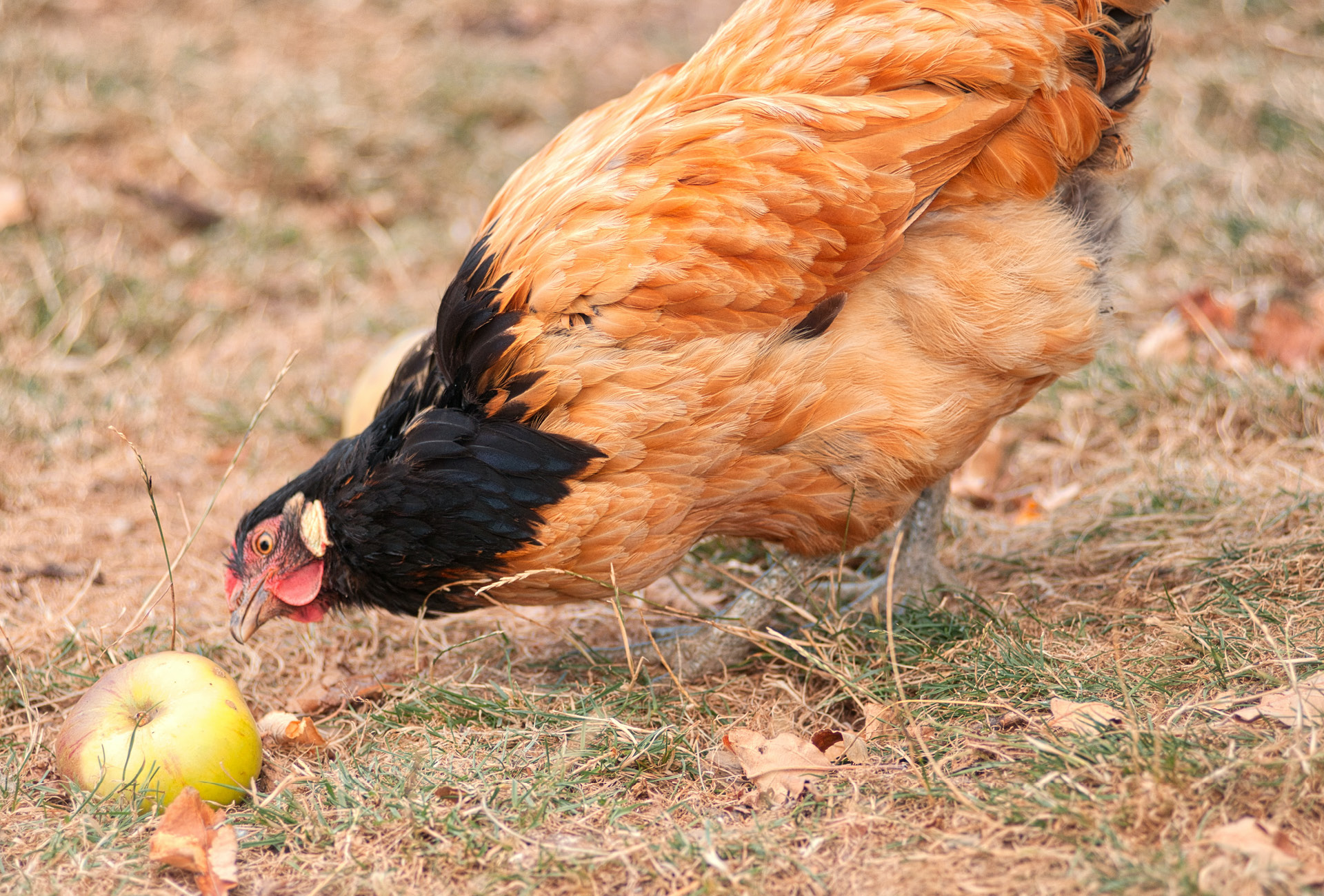
Fruit for dessert
Of course, we all like something sweet to round things off. Fruits and berries are also great vitamin bombs for chickens and can be fed in limited quantities (to avoid too much fructose). It could be a sliced watermelon for a refreshing cooldown in summer, an apple stored in autumn for variety in winter, or classic berries like blueberries, currants, raspberries and blackberries.
> My EXPERIENCE: ” While our chickens love red currants and blueberries, they steer clear of raspberries.”
Cornelian cherries (or cornels), elderberry, rosehip and buckthorn are also gladly accepted. Not to mention that the shrubs they come from also provide very good shade in the run, are an effective protective screen against danger from the air and are simply beautiful to look at.
